These are the terms of use for the CATMA web application (accessible at https://app.catma.de), our GitLab backend (accessible at https://git.catma.de) and our Mattermost instance (accessible at https://mattermost.fortext.net) – for terms pertaining to the CATMA website itself please refer to the Imprint. These terms should be read together with our Privacy Policy.
If you have additional questions or require more information about our Terms of Use, do not hesitate to Contact us.
By logging in to the CATMA web application or related services (mentioned above) you accept the following terms and conditions of usage of CATMA:
§1 License / Disclaimer of Warranty / Limitation of Liability
CATMA is an open source development licensed under the GNU General Public License, version 3 (GPL-3.0).
In addition to the terms on this page, your use of the CATMA web application and its source code is governed by the aforementioned license. The license includes “Disclaimer of Warranty” and “Limitation of Liability” clauses (§§ 15,16 GPL-3.0), both of which are hereby also applied to the public CATMA instance and related services (as mentioned at the top of this page).
Furthermore, all materials, links and information within the public or private sections of CATMA and related services that the CATMA team accounts for are thoroughly selected and checked, with the aim to be correct and comprehensive. Nevertheless, there may still be some errors. CATMA does not accept any responsibility for the validity and/or correctness of the information provided. Hyperlinked content on external websites is not actively checked or monitored.
CATMA can not be held liable for:
- any damages or disadvantages, whether direct or consequential, that may result from using the information provided
- contents linked or referred to on external websites
- contents that users of CATMA upload to the platform or related services (also see §§ 2, 3, 4 and 5 below)
- damage caused to client-side hardware or software through possible bugs or insufficiencies in the CATMA software, related services or hardware appliances
§2 Copyright Legislation Applicable
Every CATMA user acknowledges that they will observe the applicable paragraphs of German copyright law (UrhG) and jurisdiction (particularly §§ 106 ff.), as well as any applicable international copyright legislation. Alternatively, if indicated in a particular document, the legal rules of the Creative Commons Public License (CCPL) may apply. If a document or file from the CATMA sources and foundries is not explicitly distributed under the CCPL, German copyright law (UrhG) and jurisdiction shall apply. In this case, the document or file may only be redistributed or republished with the explicit permission of the author(s) or authorized licensor. For exceptions to these rules please refer to German copyright law (UrhG).
§3 Copyright on Text Uploaded to the CATMA Web Application or Related Services
CATMA does not accept any responsibility for breaches of copyright that may result from user initiated uploads onto, or any other use of, the CATMA platform or related services (as mentioned at the top of this page). The onus is therefore solely and explicitly on the CATMA user to make sure and to guarantee that no third party rights to any of the respective content is being violated. Special attention is drawn to the consequences of “sharing” documents in CATMA (see §8), allowing other systems/tools to access documents in CATMA (see §9) and exporting documents from CATMA (see §10).
Note that any user uploaded or generated content is automatically associated with a user account. Individual responsibility for every data upload is therefore recorded within CATMA and/or its related services. While CATMA neither monitors nor reviews user uploaded texts and corpora, and respects its users’ privacy rights without any reservations, a court of law might under certain conditions demand and also obtain access to this individualized information.
Materials that are subject to ordinary copyright may in many countries be distributed and used for scientific or teaching purposes, provided that they are accessible only to a defined, limited user group (such as seminars or research teams). However, as exceptions may apply to a specific material, the onus is on the CATMA user to clarify the applicable copyright conditions before uploading and/or sharing or distributing any materials via the CATMA platform or related services.
§4 Sensitive Information
CATMA does not accept any responsibility for any sensitive information uploaded onto the CATMA platform or related services (as mentioned at the top of this page). This includes, for example, interviews, surveys, medical information or anything containing personally identifiable information (PII). Should users choose to upload such data (which we advise against!), they acknowledge that it is their responsibility to pre-process the data to anonymize it and to remove any PII before upload. Note however, that depending on the exact type of information, this may not be enough to adhere to applicable law.
User data is not encrypted at rest! While a significant effort is made to prevent unauthorized access, this can not be guaranteed. If sensitive information has been uploaded accidentally or otherwise and should be deleted, users are encouraged to Contact us to ensure complete removal.
§5 Illegal Content
The CATMA platform and its related services (as mentioned at the top of this page) may not be used to upload or distribute materials and contents in breach of copyright or that are themselves subject to prosecution, however technically realized in textual, graphic or audio format (§184 StGB, esp. clause 5; §86 StGB, §130 StGB).
§6 Intellectual Property Rights Concerning Research Data
Any metadata – such as: Tags, Properties, Tagsets, Annotations, Annotation Collections, Comments or similar – produced by a user with the help of CATMA remain the sole intellectual property of that user. For specific exclusions, see §§ 8, 9, 11 and 12.
§7 Confidentiality and Permissible Uses of Access Credentials and Tokens; User Responsibility
NB: The CATMA team will never ask users for their password or a token! (We do not need this information from you, so please don’t send it. If you do, you are potentially putting your account and data at risk.)
Users agree to never share their access credentials (username / email address and password) with anyone else.
Users agree to never give a token of any type to another natural person for the purpose of directly – or through the use of another system/tool – accessing, adding, modifying or deleting resources or metadata within CATMA. Users acknowledge that all natural persons are required to create and use their own user account for such purposes.
Users agree that they are legally responsible for the actions performed on their behalf through the use of a token, that they must keep created tokens secret and only share them with systems/tools that they know and trust, and that they must immediately revoke tokens – or Contact the CATMA team to do so – if there is any reason to believe that a token was, is being, or will be used in an unauthorized manner or by unauthorized parties.
§8 Consequences of Activating the “Sharing” Option
The CATMA platform and its related services (as mentioned at the top of this page) provide the possibility to define resources or projects and their associated metadata as “shared” and invite other CATMA users to collaborate in their management, exploration, annotation and analysis.
User identities (usernames and/or email addresses) may be made visible / displayed to all users or members of the project involved. In addition, the contents of – and metadata associated with – the corresponding resources/projects may be made visible to / editable by others (according to the roles and permissions which are assigned, if applicable). Where the “writable/edit” permission is assigned, other users or members of the project are enabled to not only access, but also add, modify or delete resources or metadata, as well as add/remove users and manage roles and permissions.
The following conditions apply under all circumstances:
- Upon activating the “sharing” option for resources or projects and their associated metadata, users automatically accept full legal responsibility for potential consequences concerning copyright restrictions or privacy laws. For example, under certain conditions declaring a text or a text corpus as “shared” may result in a breach of copyright pertaining to that material (see §3) if the original permission for the use of that material was granted on a personal basis, or for a limited number of users only.
- Where a user has chosen to activate the “sharing” option, especially the “sharing” option in combination with the “writable/edit” permission, they automatically agree to sharing their original intellectual property right for the metadata with the other users or members of the project who – directly or through the use of another system/tool – contribute or edit such metadata. Where the point of origin of a particular contribution or edit of a metadata item can be traced in CATMA or its related services, the intellectual property right for that item will be deemed to be shared between all active contributors recorded by CATMA or its related services. Where an individual attribution to a user or project member is impossible, the property right for the metadata shall be deemed shared equally among all users or project members involved.
- Users acknowledge that someone with whom they have shared resources or projects and their associated metadata may be able to further share such items without the original owner’s knowledge or explicit approval.
§9 Consequences of Allowing Other Systems/Tools to Access Data in CATMA or Related Services
CATMA provides a number of features to allow for external access to data:
Personal Access Tokens
CATMA and its related services (as mentioned at the top of this page) allow users to generate “Personal Access Tokens”, which can be used to allow another system/tool to act on the user’s behalf and access any and all information that the user themselves can access, as well as perform any action that the user themselves can perform, in accordance with the so-called scope of the token and the roles and permissions granted to the user for specific projects and their associated resources and metadata.
Tokens created through the CATMA interface have a scope of “read_api” by default, meaning that such tokens can be used to retrieve, but not modify, any information to which the corresponding user has access (projects and their associated resources and metadata, as well as corresponding user identities). Furthermore, users may choose to create tokens that grant “write/edit” access, thus enabling other systems/tools to not only access, but also add, modify or delete projects, resources or metadata, as well as add/remove users and manage roles and permissions.
Exposing Data for Access in the Vega Online Editor
CATMA allows users to enable a feature in the Analyze module to “Expose the selected data for access in the Vega Online Editor”, which enables an unauthenticated, public URL* that affords read-only access to a subset (based on the selection) of the data contained in the relevant project (resources and metadata, as well as corresponding user identities) to anyone who has the URL.
*While this URL is theoretically discoverable, it includes a random UUID which makes it highly unlikely that someone would manage to do this in practice. Furthermore, the URL is tied to a specific user-session and thus only works for a limited time.
JSON API
CATMA provides a JSON API, which can be used to allow another system/tool to act on the user’s behalf and access any and all information that the user themselves can access, as well as perform any action that the user themselves can perform, in accordance with the functionality offered by the API and the roles and permissions granted to the user for specific projects and their associated resources and metadata.
The below is only relevant for the legacy JSON API, which is scheduled to be removed soon:
CATMA allows users to enable a feature in the Project module to “Share project resources”, which enables an unauthenticated, public URL* that affords read-only access to a subset of the data contained in the relevant project (resources and metadata, as well as corresponding user identities) to anyone who has the URL.
More information on the JSON API and the data it returns can be found here.
*While this URL is theoretically discoverable, it includes a random UUID which makes it highly unlikely that someone would manage to do this in practice. Furthermore, the URL is tied to a specific user-session and thus only works for a limited time.
The following conditions apply in all of the above-mentioned cases:
- Upon giving a token of any type or a URL to another system/tool, users automatically accept full legal responsibility for potential consequences concerning copyright restrictions or privacy laws. For an example of how copyright might be breached, see §8 bullet point 1.
- Where a user has chosen to give a token of any type or a URL to another system/tool, especially one that grants “write/edit” access, they automatically agree that any action performed through the use of such token or URL is deemed to have been performed by the user themselves, and that the same conditions with respect to intellectual property right as are listed in §8 bullet point 2 apply in this case.
- Users acknowledge that by allowing another system/tool to access data on their behalf, they may be violating the privacy and/or intellectual property rights of other users, whether knowingly or not. This is due to the fact that the level of access afforded by a token or URL makes no distinction between data owned by a user versus data to which they have access as a result of the “sharing” option having been used (see §8). Before giving a token or URL to another system/tool, users agree to obtain the explicit permission of any other user whose rights could potentially be impacted as a result. Where another system/tool affords the user the opportunity to select specific projects, resources or metadata, users agree to only select those items for which they have obtained permission. In the event that such system/tool does not offer the aforementioned functionality, and/or users are unable to obtain the permission of all other relevant users, they agree not to proceed with giving a token or URL to the system/tool. In such cases, users are encouraged to Contact the CATMA team for help in finding a way to use the system/tool without violating the rights of other users.
- In the event that the terms and conditions of another system/tool conflict with the terms and conditions detailed here, users agree not to proceed with giving a token or URL to such system/tool, or to cease use of such system/tool, until any conflicts can be resolved to the satisfaction of all parties involved. The terms and conditions detailed here do not aim to override the terms and conditions of any other system/tool, nor can all possible scenarios be anticipated or resolved within the scope of these terms and conditions.
§10 Consequences of Exporting Data from CATMA or Related Services
CATMA and its related services (as mentioned at the top of this page) provide multiple ways through which data can be exported and downloaded to users’ own computers. This includes the contents of – and metadata associated with – resources/projects, as well as corresponding user identities.
The following conditions apply under all circumstances:
- Upon exporting and downloading resources or projects and their associated metadata, users automatically accept full legal responsibility for potential consequences concerning copyright restrictions or privacy laws. For example, while the act of exporting and downloading a text or a text corpus is unlikely to cause a violation that isn’t already covered under §8, any further dissemination of such items could conceivably constitute a violation.
- Users agree to take appropriate action to protect any exported and downloaded resources or projects and their associated metadata from unauthorized access in order to avoid any violations of copyright restrictions or privacy laws.
§11 Post-processing and Analysis of Data and Metadata Generated by Users for the Purpose of Developing CATMA Annotation Functionalities
CATMA reserves the right to post-process and analyze as training data for machine learning purposes any data and metadata contributed or generated by a user. Any user generated data / metadata used for these purposes will be processed strictly in anonymized format only and will not be used to profile individual users under any circumstances.
Note that this clause does not apply to messages sent via, or metadata generated through the use of, our privately hosted Mattermost instance.
§12 Ownership of Algorithms and Routines Developed by Post-processing User Generated Data and Metadata
Any algorithms, routines, workflows, concepts, technologies or functionalities that may result from post-processing user generated data and metadata in accordance with §11 are deemed to be the sole property of CATMA.
§13 Permissible Uses of the GitLab Backend
CATMA’s GitLab backend may only be used for the storage and versioning of projects created with CATMA. Access to the GitLab backend is provided to allow for direct access to and modification of CATMA project data, including through the use of other systems/tools (see §9).
Users agree that they will not create GitLab groups or projects for any other purpose (for example, to host code or files not related to a CATMA project), and that any such groups or projects may be deleted by the administrators without warning. Furthermore, users agree not to use any GitLab features, integrations, settings or options that are not intended to be used in the normal course of working with CATMA or on CATMA project data. Changing certain settings or options in relation to groups or projects may also have unintended consequences, and could lead to a CATMA project being “broken” (for example, unable to be opened or worked on in CATMA). If users intend to use any GitLab feature, integration, setting or option for a purpose not specified here, or if they are unsure whether a certain use is permissible, they should Contact us first.
§14 Mattermost (Code of Conduct)
Our Mattermost instance is a shared space that is used for a variety of purposes, and as such we ask that you conduct yourself in a respectful and polite manner at all times. We reserve the right to edit or remove messages, or to block or completely remove you from this platform if you ignore these rules. We will not tolerate:
- vulgar, abusive, racist or discriminatory language or content of any type
- any form of harassment
- any other action that shall, at the sole discretion of the CATMA team, be deemed to be offensive or not in line with the objectives of providing this platform to you
Please ask your questions in the appropriate public channels, and don’t send private messages to administrators or moderators unless you have been invited to do so first, or you need to make us aware of a violation of any of the aforementioned rules, terms or policies.
§15 Protection of Personal Rights
Users may not post or distribute any content that could be deemed to be personally offensive, defamatory or threatening via CATMA or related services (as mentioned at the top of this page) (§§ 185 ff. StGB). All users must respect each other’s privacy. Unauthorized access to data is strictly prohibited (§202a StGB).
§16 Protection of Technical Infrastructure
Users may not install, set up or use any applications or scripts that could have an adverse effect on the performance or security of the technical infrastructure of the CATMA web application, related services (as mentioned at the top of this page) or network facilities (§303a/b StGB).
§17 Invoking Action by Administrators; User Liability
If the CATMA system administrators become aware of possible violations of the above terms and conditions, the user in question will normally receive a warning via email first. In case of continued violations, or serious violations that require immediate action, the administrators are authorized to terminate the user’s access to CATMA or related services (as mentioned at the top of this page) with immediate effect.
CATMA reserves the right to protect the web application, related services, technical infrastructure, network facilities and users against any unauthorized or unlawful use, access, attack, or similar, at all times.
If a violation of the above terms and conditions results in serious damage to the technical infrastructure of the CATMA web application, related services or network facilities, the user is liable to the extent that the fault was on their part.








